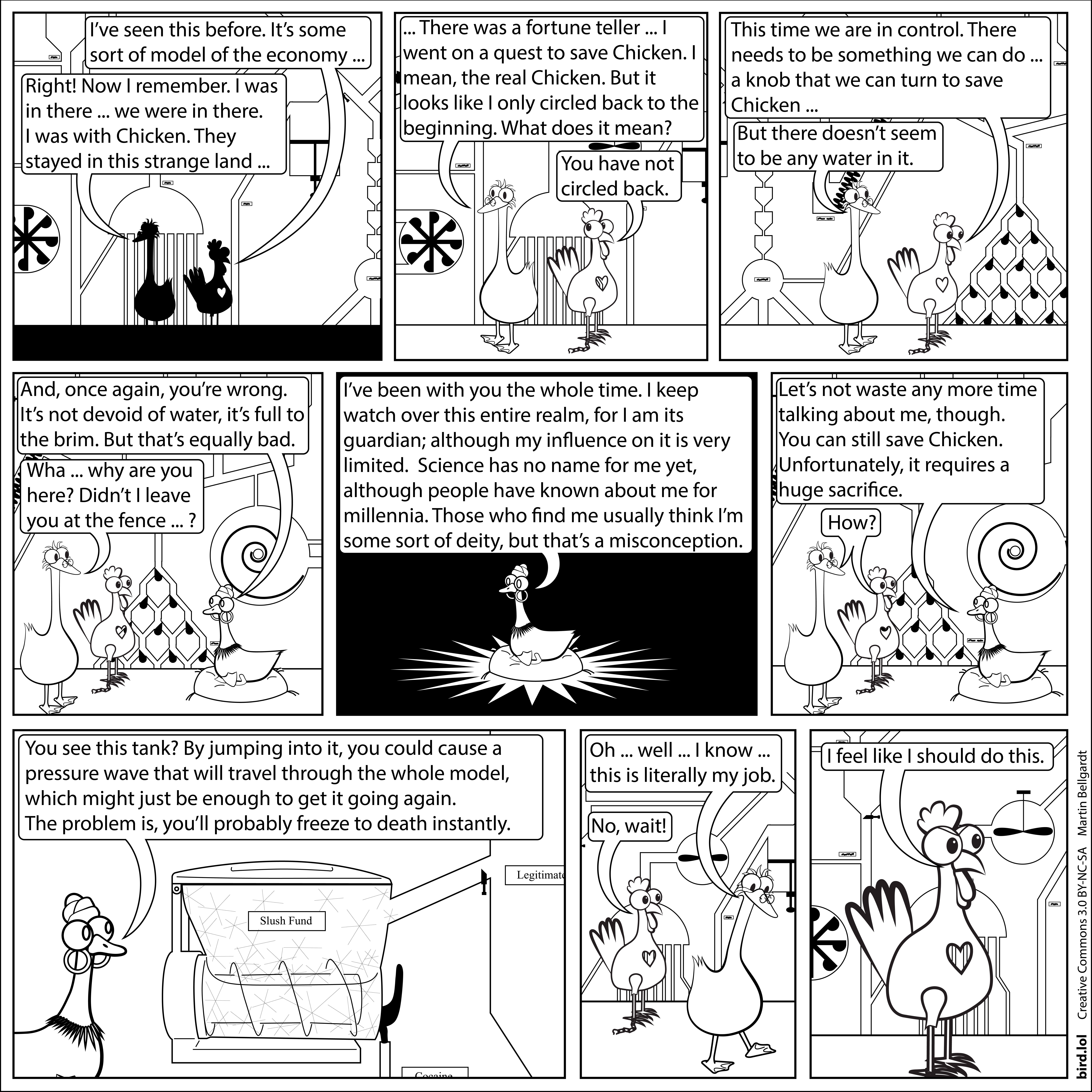It's so crazy how little science seems to know about what's going on in our heads. I mean, we know quite a bit about the hardware, but we seem to have no clue about the software. This is mainly because we don't have a language to talk about it. Everything I ever read about the brain was somehow based on physiology. And while we can explain some stuff with brain areas, neurons, synapses, neuro transmitters, hormones, etc., we couldn't understand modern computers by looking only at semiconductors, electrons, microchips and circuit boards. We have lots of words for abstract concepts in software, like loops, classes, data structures, variables or algorithms.
Isn't it crazy that I have to borrow the language of computers to talk about this? The "software running on our brains", what is that even called? Maybe there is a word for it and I'm just an idiot, but I feel like neuroscientists don't really care to make a distinction between hard- and software. I think that is a shame. When looking at what state an information processing system is in, it's far less important how this state physically manifests itself, than what that state *represents*.
I know that it's much easier to interpret these systems when we were the ones who designed them, because we can actually define the clean abstractions and stick to them, whereas evolution is the worst programmer of all time, where nothing follows the single-responsibility-principle and everything has lots of side effects. But that doesn't mean we shouldn't try.
What do we call the fundamental unit of information in our brains? Should we actually use "bits", although none of it is discrete? When we think, we recall these pieces of information and perform some operations on them. What do we call these operations? Can we find out what operations are possible and can we classify them? I mean, when you're just sitting there and a thought comes to mind, you think about it for a moment and discard it again, you have essentially done a "session" of processing. What do we call a processing session like this? These are just a few examples for concepts that I don't think we have a word for, but I think we should.
I thought about just coming up with some ridiculous names here, like "flubblejubble", but it's neither my place to name them, nor is it likely to see wide spread adoption of terms coined on a widely unknown webcomic site. I just want to put this idea out there, since it could be an entirely new angle to study neuroscience. Computational neuroscience has some very cool ideas that might go in this direction, but they're all coming from the direction of physiology. I suggest to look at it more from the direction of thinking patterns, a bit more like psychology, but with the intend to really deconstruct these patterns instead of just looking at their implications on behavior.
I know that this process would be difficult to apply the scientific method to. In essence, what I'm suggesting is to base these analyses on experiments with one's own mind which is impossible to document and independently validate. You probably couldn't publish many intermediate results. However, what I'd hope is that it would lead to a model of thinking that is less based in physiology, but providing a useful abstraction for human thinking that can make predictions about the human mind that can then be tested scientifically. Imagine coming up with a branch of mathematics that can accurately predict the accuracy and limits of human conception! The benefits would be immense. It could be applied not only to neuroscience and psychology but also sociology, economics or even linguistics.
So, if you're a neuroscientist with a bit of scientific outreach, please consider naming some of these abstract concepts. I'm sure you can come up with better terms than "flubblejubble".

